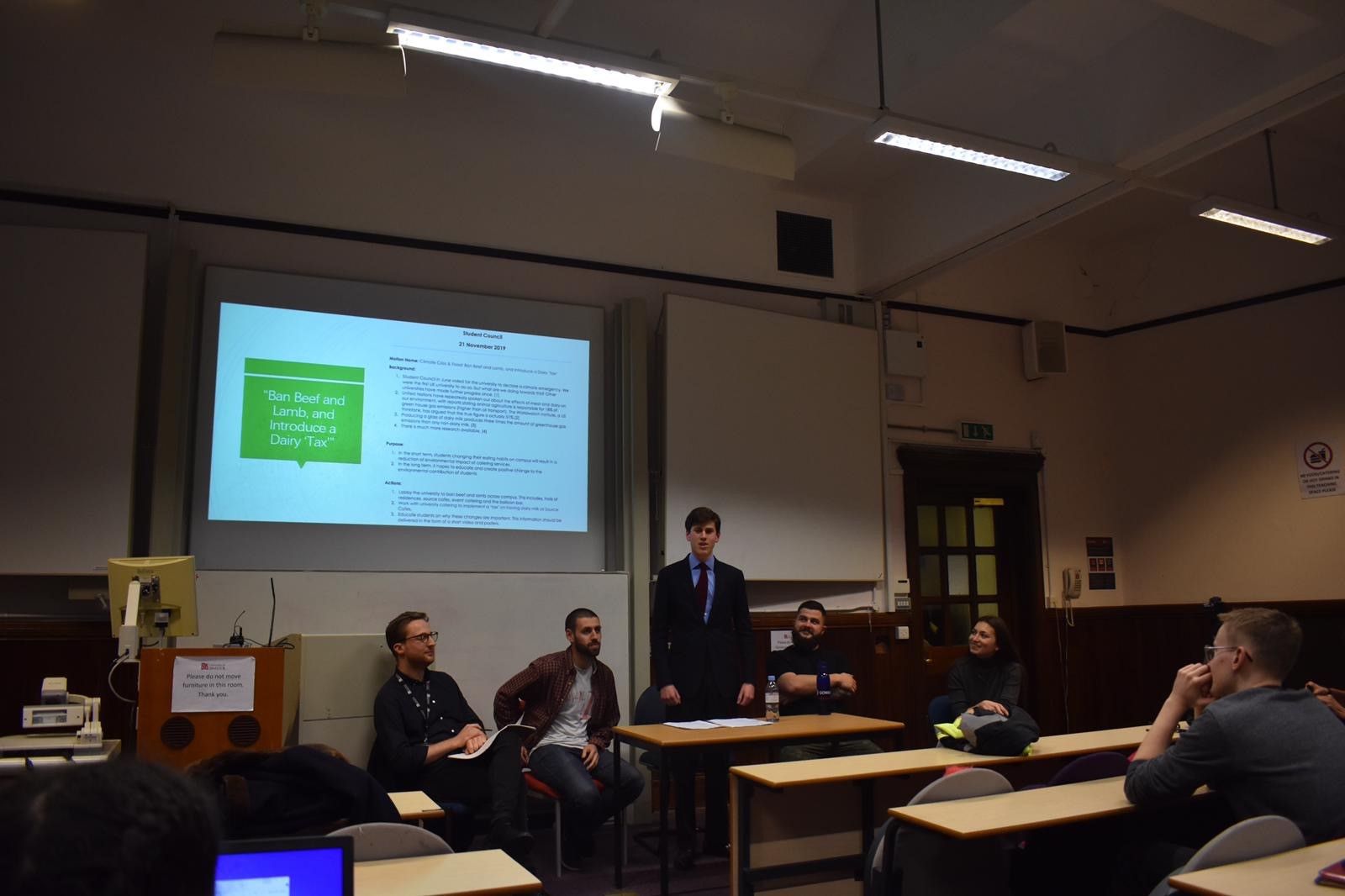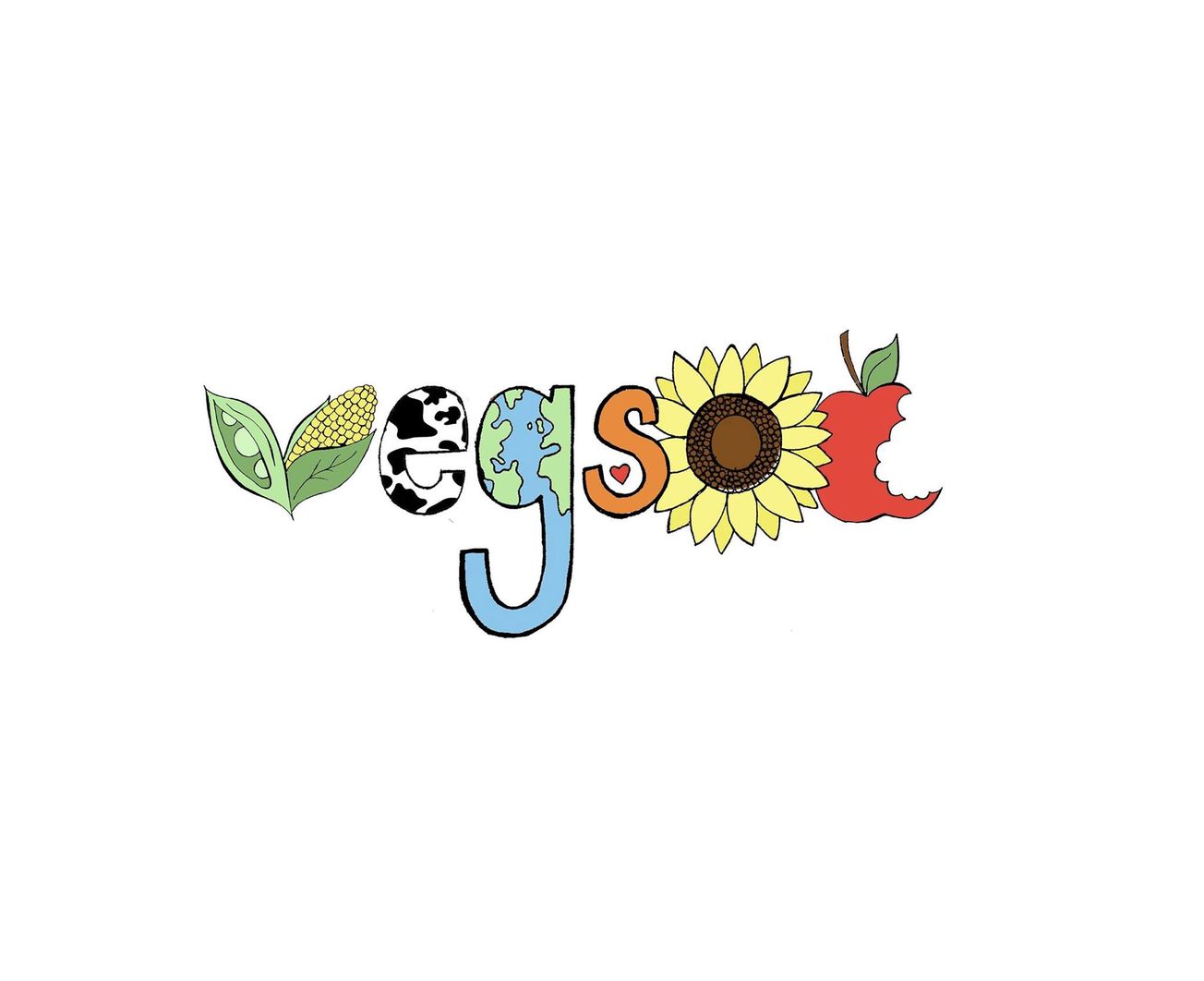By Cordelia Hughes, Third Year Chemistry
I would like to say to Oliver Briscoe, of Bristol Conservative Association, that I am glad that you have some positive things to say about VegSoc’s plant-based panel. Despite acting as my token Tory, you are right in saying there was some agreement about the importance of environmentalism in this day and age. But after sitting silent in my role as chair, I would now like to disagree with some of the impassioned points in your Epigram article.
Your glorification of the Conservative environmental record really does concern me. Growing up in a right-winged sphere, I remember the rhetoric that wind turbines were useless eyesores, and that the anti-fracking movement was simply driven by tree-hugging maniacs. The Conservative Party has repeatedly cast aside the environment for self-preservation. Now speaking from within the movement, I feel terrified watching urgent solutions take second place to the sole drive to create money. I completely refute that you can place the weight on individual action’s shoulders when the roots of our system are so rotten.
What you do not acknowledge, Oliver, is that we do not simply live in the United Kingdom, we live in a global world. A world where 1% of emissions the UK claim to be responsible for is entirely unrepresentative of the true volume of carbon we outsource.
I feel terrified watching urgent solutions take second place to the sole drive to create money
There are only so many times you can lay the blame at China’s door when it is our system that demands multitudes of cheap, fast goods, no matter the environmental or human cost. You go on to dirty the importation of Peruvian quinoa and the Chilean avocado, forgetting it that it was the same quest for economic growth that you ask to lead the way to green innovation, that spearheaded worldwide cultural and climate destruction. There is no necessity for relentless pursuit of global domination in order to retain a sustainable and successful economy.
In the same breath, I must point out that the God-forsaken avocado is, in fact, better for the planet than your Somerset Steak. I will bore you with the basics from my favourite study: animal agriculture produces only 18% of global calories, uses 83% of our farmland, and generates 60% of carbon emissions of all food production. The beauty of this study lies not only in those three pillars of data, but in its sentiment. Joseph Poore worked on this research in pursuit of sustainably sourced animal products. At the end of his research, Poore states that there is no such thing. He found that not even the scapegoat avocado was more detrimental than its weight in beef.
The time is almost upon us to #voteoat
AMM from 5.30, Anson Rooms, Free pizza.
Use your voat.
Posted by University of Bristol VegSoc on Monday, 24 February 2020
It takes very little to understand how inefficient animal products are. Whether your cows are coming from Brazil or the Welsh borders, they’re eating a lot of food, and producing a lot more methane.
As an all-loving vegan, I should celebrate the life of every animal, but quite frankly, there are far too many calorie-dissipating cows on this planet. I do not blame an overpopulation crisis, but simply a pursuit of greed. Humans do not need meat to survive and thrive - for the Global North it is most often a choice. The meaty middleman is an intrinsic flaw in our food system; where enough food is grown to feed 11 billion people, and almost a billion are starving.
Food system change is not about antagonising the steak-eating patriots in our country, it is about making the choices we need to in times of emergency. If we could understand the scale of the suffering that climate change already begins to provoke, we would not be so precious about our carbon intensive conventions. I only agree with shedding the limelight on cruise ships and aviation; however, you fail to acknowledge that changing your diet has the biggest impact on your individual emissions. Yes, we should look beyond that, devote our careers and innovations to even bigger solutions; but in a world of almost 8 billion, we are eating a lot of food.

I ask the University what choices they want to make. The first university to declare a climate emergency shouldn’t continue business as usual. We are celebrating the divestment of fossil fuels, investment in green research, but I’m still here waiting for a decent range of vegan sandwiches. Paying more for a plant-based sandwich might very well be a first-world problem, but this price and lack of option is completely counterintuitive when you look at the environmental cost. On left-leaning University ground, why is change so slow?
The AMM and student council motions were initiatives to call for change. When I put forward the motion to trial a dairy free campus, however, it was a lesson that ride-or-die veganism is not accessible to all. With a complete restriction on dairy I had sidelined many food-related disabilities. That leads me to realise the University does not need a ban, but simply needs a shift in overarching ideology, and that involves a plant-based system. Each decision our university makes should involve a moment of self-reflection, a scrutinisation on whether it is truly representative of a climate emergency. The food we buy casts a vote of demand for the future, and we should all demand compassion.
Each decision our University makes should involve a moment of self-reflection
I raise this conversation because I do not feel we are committed enough to fighting global disaster. Individualism alone is not moving at the speed we need it to.
No part of me has stopped believing that going vegan is the greatest way I have created change, but individual diet change is not enough - institutions need to follow suit. This majority government is basing its plans for the future on reluctant ideals from the past. You speak of ambition, of innovation and of progressive steps towards a green future, and yet you ignore the revolutionary dietary research lying in front of you. We need to listen to new ideas if we have any hope.
There is no status quo on a dead planet, Oliver.
| Read Oliver's side of the debate here
Featured Image: VegSoc
Do you think that the right-wing has ignored the institutional responsibility for the climate crisis? Let us know









